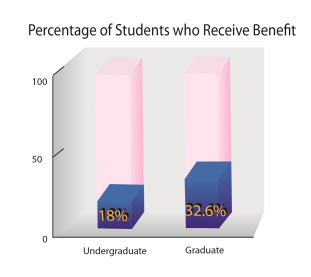About three weeks ago, it was announced that the board of directors of the medical expense reimbursement program voted to discontinue the program starting next semester. The initial response of the student body was outrageous. It is not too surprising because the school administration has not been very eager to consider students’ opinions in sensitive matters such as the recent curriculum reform. The criticism was later re-aimed upon the student representatives for casting their votes based on their opinion rather than drawing up the consensus of the student body, even though they announced the items to discuss one week prior to the meeting. In an effort to make up for the mistake, Jeonghwan Yi (CE 08), the president of the student union negotiated an alternative plan with the dean of the students. In this article, The Postech Times will try to clarify some of the facts, thereby aiding in better understanding of the critical matter that could potentially affect all POSTECH students.
What is the Medical Expense Reimbursement?
This program was first started in 1993 despite negative responses from some students when the national healthcare was not mandatory and as affordable as it is nowadays. Medical treatments for simple illnesses such as cold cost about 60,000 KRW, which is no cheap price for a college student, even today. This was also to provide financial support for other treatments that require a lump sum of money.
One of the major misunderstandings about this program is that it is seen as insurance; however, it is actually more of a collective fund for mutual help among students. This is solely run by the funds collected from students, with the only help from the university being administrative process. Today, the requests that fall under the liability and accident insurance coverage are automatically sorted for students’ convenience during this process.
The policy and specifications are decided and run by the board of directors, which consists of three faculty and staff members and seven student representatives, of which four are in the undergraduate and three in the graduate program. Covering both domestic and foreign students, the medical expense reimbursement compensates for any medical bill that occurs during academic semesters while living on campus.

Why are they trying to abrogate it?
There are three reasons for this.
1. Prevalent purchase of insurance
Administration says that the program has now lost its need for existence because the national healthcare is mandatory and the university is insured to plans that cover injuries that occur during academic or research activities on campus. In addition, many students are now insured with other plans.
2. Disproportional and tarnished uses
Looking at the data provided by the student affairs, you can see that only 18.3% of undergraduates (243 out of 1,330 total enrollment) and 32.6% (693 out of 2,128 total enrollment including foreign students) have benefited in the first semester 2011. This alone cannot be a strong argument, but the very fact that nearly three-fold more graduate students take advantage of this program calls for disproportion. The president of student union, Jeonghwan Yi mentioned that “Some say the fund should be divided for undergraduates and graduates” for this reason.
Also, the distribution of the amount of reimbursement is concentrated heavily on the treatments that are fewer than 100,000 KRW. The benefited amount in this category is 55.2% of the total reimbursements granted with 32,766,000 KRW, and this category takes up 93% of the total requests. In other words, both human and financial resource is dissipated in requests that are trivial compared to other treatments that require a large sum of money.
3. Inevitable increase in program fee
The prices rise every year as though there is no peak. In addition, the government announced that specific coverage will change and the medical expense will go up next year. To accommodate this, the fee will have to climb as well, but the board was faced with adamant disagreement from the students back in 2009 when the price escalated. Instead of having to raise the fee every other year and running into the students’ objection, abrogation of the program altogether could potentially save the trouble.
What is the alternative plan?
The final decision is postponed until the end of August, 2012. This decision was reached because there is not enough time to work out the details such as operation methods and composition of the board. As of now, the incoming freshman class has to register in a few months and the new student union representatives will take over the matters starting on Jan. 1, 2012. Meanwhile, as the next year’s student union mediates the matter in attempt to reach the most viable solution, the reimbursement will continue through the first semester of 2012.


